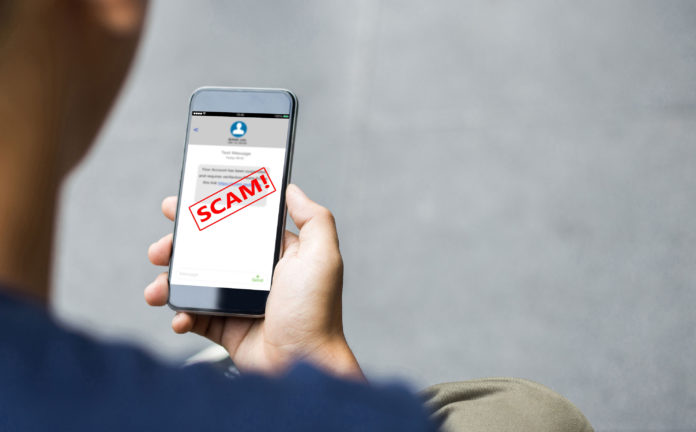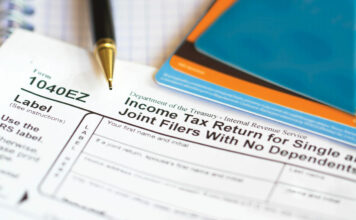CENTRAL COAST — Utility scams have continued at an alarming rate during 2025, with Pacific Gas and Electric Company (PG&E) customers reporting over $190,000 in losses to scammers.
To stop this trend, PG&E is committed to helping customers recognize the signs of a scam to avoid falling victim.
A typical sign of a scam targeting a utility customer includes a caller claiming to be from PG&E and threatening disconnection if immediate payment is not made via a pre-paid debit card, digital payment mobile application, or other methods of money transfer.
As a reminder, PG&E will never send a single notification to a customer within one hour of a service interruption and will never ask customers to make payments with a pre-paid debit card, gift card, any form of cryptocurrency or instant mobile payment applications, like Zelle or Venmo.
“Scammers seek to create a sense of panic, threatening disconnection of utility services if immediate payment is not made. If a phone call, visit to your home or email doesn’t feel right, don’t fall for it. Hang up, shut the door and do not respond to the email,” said PG&E Cybersecurity Risk Manager Amy Lucido. “Remember, PG&E will never ask for your financial information over the phone or via email, nor will we request payment via pre-paid debit cards or other methods of money transfer, including mobile applications.”
So far this year, PG&E has received more than 10,000 reports of scams targeting residential and business customers — nearly 200 of those reports came from the Central Coast:
- Monterey County: 110 reported scams;
- Santa Cruz County: 60 reported scams;
- San Benito County: 11 reported scams; and
- San Luis Obispo County: 13 reported scams.
The average scam victim lost over $900, and more than 200 customers companywide have reported falling victim. This number is likely just the tip of the iceberg as many scams go unreported.
Business customers are also not immune from scam attempts. In fact, PG&E has received 250 reports of scams targeting small and medium-sized businesses this year, and these attempts frequently occur during busy business hours when scammers hope to catch unsuspecting victims while they are distracted or stressed.
Scammers can be convincing and often target those who are most vulnerable, including senior citizens and low-income communities. They also aim their scams at small business owners during busy customer service hours. However, with the right information, customers can learn to detect and report these predatory scams by visiting pge.com/scams or by calling 1-833-500-SCAM.
Signs of a potential scam
- Threat to disconnect: Scammers may aggressively demand immediate payment for an alleged past due bill.
- Request for immediate payment: Scammers may instruct the customer to purchase a prepaid card, then call them back supposedly to make a bill payment.
- Request for prepaid card: When the customer calls back, the caller asks the customer for the prepaid card’s number, which grants the scammer instant access to the card’s funds.
- Refund or rebate offers: Scammers may say that your utility company overbilled you and owes you a refund, or that you are entitled to a rebate, and ask you for your personal financial information.
- Scammers Impersonating Trusted Phone Numbers: Scammers are now able to create authentic-looking 800 numbers which appear on your phone display. The numbers don’t lead back to PG&E if called back, however, so if you have doubts, hang up and either log into your account at pge.com to confirm your bill details or call PG&E at 1-833-500-SCAM. If customers ever feel that they are in physical danger, they should call 911.
How customers can protect themselves
- Customers should never purchase a prepaid card to avoid service disconnection or shutoff. PG&E does not specify how customers should make a bill payment and offers a variety of ways to pay a bill, including accepting payments online, by phone, automatic bank draft, mail or in person.
- If a scammer threatens immediate disconnection or shutoff of service without prior notification, customers should hang up the phone, delete the email, or shut the door. Customers with delinquent accounts receive an advance disconnection notification, typically by mail and included with their regular monthly bill.
- Signing up for an online account at pge.com is another safeguard. Not only can customers log in to check their balance and payment history, they can also sign up for recurring payments, paperless billing and helpful alerts. Customers can also call PG&E Customer Service at 800-743-5000 to confirm their bill details and current amount due.
- Customers who suspect that they have been victims of fraud, or who feel threatened during contact with one of these scammers, should contact local law enforcement. The Federal Trade Commission’s website is also a good source of information about how to protect personal information.
For more information about scams, visit pge.com/scams or consumer.ftc.gov/scams.















